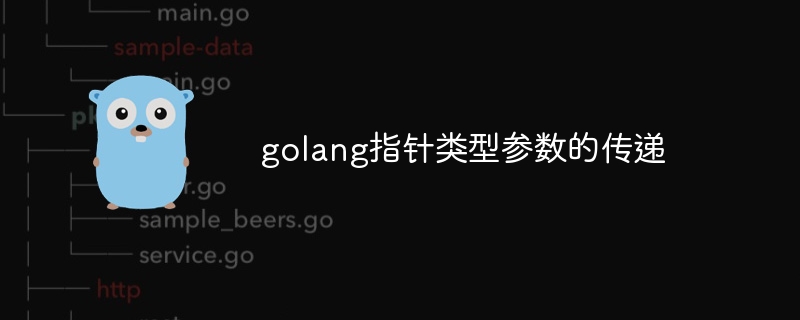Home >Backend Development >Golang >Passing of golang pointer type parameters
Passing of golang pointer type parameters
- PHPzOriginal
- 2024-04-22 14:48:011132browse
Pointer type parameter passing is an efficient data passing technology in the Go language, allowing functions to modify the original data structure and improve performance and memory efficiency. It is suitable for situations where the original data needs to be modified, the data structure is large or immutable. To use pointer type parameter passing, add an asterisk (*) before the function parameter type and pass a pointer to the data structure when calling the function. Practical cases show that it can effectively modify the original data structure and avoid creating copies.

Pointer type parameter passing in the Go language
Pointer type parameter passing in the Go language is a method used to efficiently transfer large objects between functions. Or immutable data structure technology. It allows functions to modify the original data without creating a copy of it, improving performance and memory efficiency.
When to use pointer type parameter passing
Pointer type parameter passing is especially suitable for the following situations:
- When the function needs to modify the original data structure.
- When the data structure is large and copying it will be very expensive.
- When the data structure is immutable and you don't want to create copies of it.
How to use pointer type parameter passing
To use pointer type parameter passing, just add an asterisk (*) before the function parameter type:
func someFunction(ptr *MyStruct) {
// ptr指向原始 MyStruct 实例
}When calling a function, you must pass a pointer to the data structure instead of the data structure itself:
myStruct := MyStruct{}
someFunction(&myStruct)Practical case
The following is a practical case using pointer type parameter passing:
package main
import "fmt"
type User struct {
name string
age int
}
func updateUser(user *User) {
user.name = "John Doe"
user.age = 30
}
func main() {
user := User{name: "Jane Doe", age: 25}
fmt.Println(user) // {Jane Doe 25}
updateUser(&user)
fmt.Println(user) // {John Doe 30}
}Output:
{Jane Doe 25}
{John Doe 30}In this example, the updateUser function receives a pointer to a User structure using a pointer type argument, so it can modify the original data . After calling updateUser, the name and age fields of the structure have been updated.
The above is the detailed content of Passing of golang pointer type parameters. For more information, please follow other related articles on the PHP Chinese website!

